第54章
My success as story-teller, commentator, critic, jester, revived my childish ambition towards authorship. My first stirrings in this direction I cannot rightly place. I remember when very small falling into a sunk dust-bin--a deep hole, rather, into which the gardener shot his rubbish. The fall twisted my ankle so that I could not move; and the time being evening and my prison some distance from the house, my predicament loomed large before me. Yet one consolation remained with me: the incident would be of value to me in the autobiography upon which I was then engaged. I can distinctly recollect lying on my back among decaying leaves and broken glass, framing my account. "On this day a strange adventure befell me. Walking in the garden, all unheeding, I suddenly"--I did not want to add the truth--"tumbled into a dust-hole, six feet square, that any one but a moon calf might have seen." I puzzled to evolve a more dignified situation. The dust-bin became a cavern, the entrance to which had been artfully concealed; the six or seven feet I had really fallen, "an endless descent, terminating in a vast and gloomy chamber." I was divided between opposing desires: One, for rescue followed by sympathy and supper; the other, for the alarming experience of a night of terror where I lay. Nature conquering Art, I yelled; and the episode terminated prosaically with a warm bath and arnica. But from it I judge that desire for the woes and perils of authorship was with me somewhat early.
Of my many other dreams I would speak freely, discussing them at length with sympathetic souls, but concerning this one ambition I was curiously reticent. Only to two--my mother and a grey-bearded Stranger--did I ever breathe a word of it. Even from my father I kept it a secret, close comrades in all else though we were. He would have talked of it much and freely, dragged it into the light of day; and from this I shrank.
My talk with the Stranger came about in this wise. One evening I had taken a walk to Victoria Park--a favourite haunt of mine at summer time. It was a fair and peaceful evening, and I fell a-wandering there in pleasant reverie, until the waning light hinted to me the question of time. I looked about me. Only one human being was in sight, a man with his back towards me, seated upon a bench overlooking the ornamental water.
I drew nearer. He took no notice of me, and interested--though why, I could not say--I seated myself beside him at the other end of the bench. He was a handsome, distinguished-looking man, with wonderfully bright, clear eyes and iron-grey hair and beard. I might have thought him a sea captain, of whom many were always to be met with in that neighbourhood, but for his hands, which were crossed upon his stick, and which were white and delicate as a woman's. He turned his face and glanced at me. I fancied that his lips beneath the grey moustache smiled; and instinctively I edged a little nearer to him.
"Please, sir," I said, after awhile, "could you tell me the right time?"
"Twenty minutes to eight," he answered, looking at his watch. And his voice drew me towards him even more than had his beautiful strong face. I thanked him, and we fell back into silence.
"Where do you live?" he turned and suddenly asked me.
"Oh, only over there," I answered, with a wave of my arm towards the chimney-fringed horizon behind us. "I needn't be in till half-past eight. I like this Park so much," I added, "I often come and sit here of an evening.'
"Why do you like to come and sit here?" he asked. "Tell me."
"Oh, I don't know," I answered. "I think."
I marvelled at myself. With strangers generally I was shy and silent; but the magic of his bright eyes seemed to have loosened my tongue.
I told him my name; that we lived in a street always full of ugly sounds, so that a gentleman could not think, not even in the evening time, when Thought goes a-visiting.
"Mamma does not like the twilight time," I confided to him. "It always makes her cry. But then mamma is--not very young, you know, and has had a deal of trouble; and that makes a difference, I suppose."
He laid his hand upon mine. We were sitting nearer to each other now.
"God made women weak to teach us men to be tender," he said. "But you, Paul, like this 'twilight time'?"
"Yes," I answered, "very much. Don't you?"
"And why do you like it?" he asked.
"Oh," I answered, "things come to you."
"What things?"
"Oh, fancies," I explained to him. "I am going to be an author when I grow up, and write books."
He took my hand in his and shook it gravely, and then returned it to me. "I, too, am a writer of books," he said.
And then I knew what had drawn me to him.
So for the first time I understood the joy of talking "shop" with a fellow craftsman. I told him my favourite authors--Scott, and Dumas, and Victor Hugo; and to my delight found they were his also; he agreeing with me that real stories were the best, stories in which people did things.
"I used to read silly stuff once," I confessed, "Indian tales and that sort of thing, you know. But mamma said I'd never be able to write if I read that rubbish."
"You will find it so all through life, Paul," he replied. "The things that are nice are rarely good for us. And what do you read now?"
"I am reading Marlowe's Plays and De Quincey's Confessions just now,"